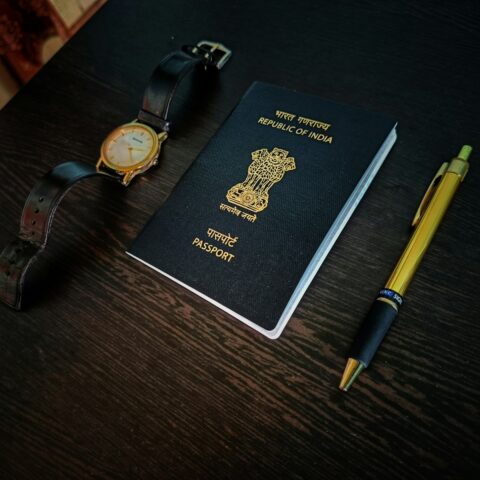Supreme Court Upholds Sanctity of Arbitration, Bars Non-Signatories from Confidential Proceedings

Introduction
The Supreme Court of India has given a significant ruling in the matter of Kamal Gupta vs M/s. L.R. Builders Private Limited[1]. The court upheld that arbitration proceedings are strictly limited to signatories of an arbitration agreement. In a ruling that emphasizes party autonomy and confidentiality, the Court held that non-signatories have no right to attend arbitration proceedings, even if their interests may be indirectly affected. This judgment sets a clear precedent, setting aside orders of the Delhi High Court that, after initially rejecting, later permitted non-signatories to attend in already disposed of Section 11(6) proceedings.
Table of Contents
Background of the Case
The dispute arose from a family settlement between Pawan Gupta (PG) and Kamal Gupta (KG) in 2015, which was later formalized in a Memorandum of Understanding (MoU)/Family Settlement Deed in 2019. The MoU excluded Rahul Gupta, KG’s son, who was not a signatory.
When an arbitration clause under the MoU was invoked, Rahul Gupta and other non-signatory entities sought permission to attend the proceedings and access case records. The Delhi High Court dismissed this request on 22.03.2024 but, in August and November 2024, in disposed Section 11(6) proceedings, allowed them to attend, citing inherent power. The signatories challenged this order in the Supreme Court, arguing that allowing non-signatories would violate the confidentiality of the arbitral process.
Legal Context: Binding vs. Attendance
While doctrines like the “Group of Companies,” agency, or estoppel may bind a non-signatory under limited circumstances, the Court clarified that in this case being bound by an arbitral award does not automatically confer the right to participate or attend the proceedings. Attendance is strictly procedural and reserved for signatories to the arbitration agreement.
Supreme Court’s Reasoning
- No Right to Attend Arbitration for Non-Signatories
The Court emphasized that arbitration is a consensual process, and only parties who have signed the arbitration agreement have the legal right to participate. Section 35 of the Arbitration & Conciliation Act, 1996, allows the arbitral tribunal to conduct proceedings between signatories but does not confer any right on non-parties. Since the non-signatories in this case were strangers to the MoU/FSD and not claiming under any party, the award would not bind them. The Court observed that permitting a non-signatory to remain present in proceedings, when the award would not bind them, is “unknown to law.”
- Confidentiality Under Section 42A
Confidentiality is a cornerstone of arbitration. Section 42A mandates that the arbitrator, arbitral institution, and parties maintain confidentiality of all proceedings, including submissions and hearings. Allowing non-signatories to attend would violate this statutory mandate, as they are not bound by the same duty of privacy and may have conflicting interests. Confidentiality protects sensitive commercial or personal information and ensures the integrity of the arbitration process.
- Remedies and Judicial Intervention
Non-signatories have limited remedies under the Act. They cannot participate in arbitration proceedings but may challenge enforcement of an arbitral award against them under Section 36. Moreover, once an arbitrator is appointed under Section 11(6), the High Court becomes functus officio, and entertaining post-appointment applications by non-signatories constitutes judicial overreach. The Court further held that Section 151 CPC cannot be invoked for such attendance and that Section 5’s “negative facet” bars judicial intervention not provided for in Part I of the Act. This ensures arbitration remains a self-contained, party-driven mechanism with minimal court interference.
- Distinction from Binding Doctrines
The Supreme Court clarified that only signatories to an arbitration agreement have the right to participate in arbitration proceedings. Non-signatories cannot attend hearings, as the arbitral award would not bind them, and their presence would breach the confidentiality obligations under Section 42A of the Arbitration and Conciliation Act, 1996. Any remedy for non-signatories is limited to challenging enforcement of an award under Section 36.
Key Takeaways
- Signatories Only: Arbitration is strictly limited to parties who have signed the arbitration agreement.
- Confidentiality Protected: Non-signatories cannot attend without breaching Section 42A.
- Limited Remedies for Non-Signatories: Only recourse is challenging enforcement under Section 36.
- Precedent Set: Courts must respect the private, consensual, and self-contained nature of arbitration.
Conclusion
The Supreme Court’s ruling reinforces that arbitration in India remains a private, consensual, and confidential dispute resolution mechanism, strictly reserved for signatories. By overturning the Delhi High Court’s order, the apex court clarified procedural boundaries and emphasized that non-signatories cannot participate in hearings while retaining only the legal remedy to challenge enforcement of awards. This judgment safeguards the integrity and confidentiality of arbitration, providing clear guidance for courts, parties, and arbitrators alike. The Court also imposed costs of ₹3,00,000 on the respondents (non-signatories), payable to the Supreme Court Advocates-on-Record Association within two weeks.
For more details, write to us at: contact@indialaw.in
[1] 2025 INSC 975
By entering the email address you agree to our Privacy Policy.



